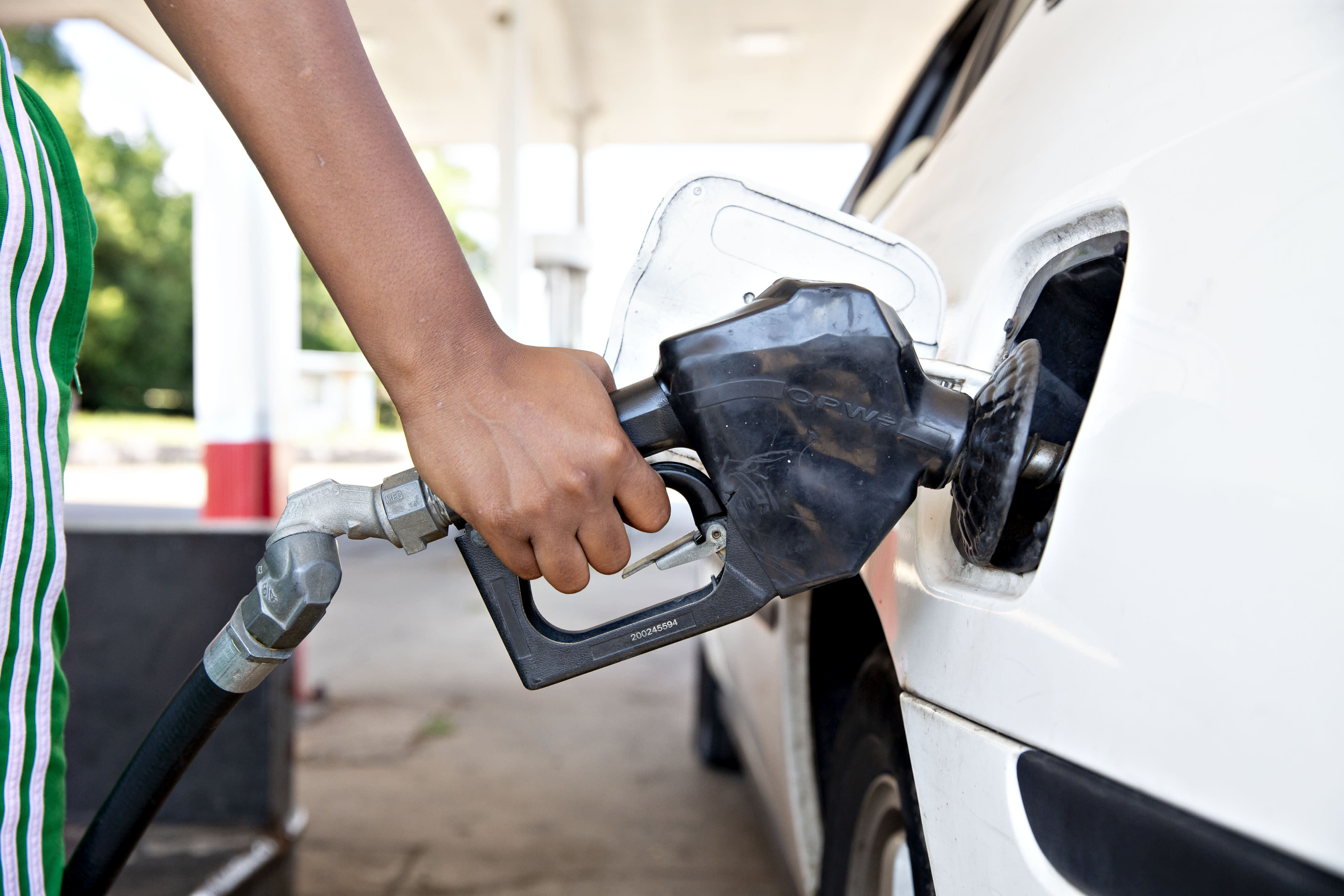Drivers may need to prepare for more potential pain at the pump.
The national average price of a gallon of regular unleaded gas has reached $3.59, up 33 cents so far this year, according to GasBuddy data. With ongoing uncertainty over how oil supplies could be affected by Russia’s invasion of Ukraine, consumers are likely to continue to see elevated prices when they fill up their tank.
“This is an extremely fluid and volatile situation,” said Patrick De Haan, head of petroleum analysis at GasBuddy. “It’s going to be a bumpy road.”
Oil prices spiked Thursday on the heels of Russia invading Ukraine. U.S. crude, for instance, surged above the $100-a-barrel mark before settling around $92, after President Joe Biden said there currently are no plans for economic sanctions to target Russia’s exports of oil and gas. The country is the world’s second-largest producer of natural gas and one of the largest oil producers.
A year ago, the price per barrel was about $60. Crude accounts for roughly half the price of gas at the pump.
As the conflict in Ukraine intensifies, it’s unclear how the situation will unfold. Oil supplies already are tight, which puts additional pressure on prices: The current total domestic crude stocks are about 10% lower than they were a year ago, according to AAA.
More from Personal Finance:
The ‘money talk’ couples should have before marriage
8 in 10 consumers pay above sticker price for new car
Here are 3 ways to spend your tax refund this year
For U.S. drivers, these factors mean gas prices — which are roughly 40% higher than they were in early pre-pandemic 2020 — will likely remain high and could go even higher. It’s possible that the average will hit $4 a gallon this spring, De Haan said.
But there are ways to try spending less of your household budget on increasingly expensive gas fill-ups.
For starters, you can drive more gently, which can make your car’s engine operate more efficiently, De Haan said. In other words, don’t do things like speed or race from stoplight to stoplight. You also can aim to make your fill-ups stretch farther by combining trips.
Also, be sure to shop around for the best price. Depending on where you live, there can be big price swings among gas stations.
Even if the difference in price per gallon may not be much, it can still add up to hundreds of dollars per year. Prices from one state to another also can vary significantly. And some stations may offer a discount if you pay with cash.
What’s more, cost-conscious motorists use apps — including GasBuddy, Gas Guru and AAA TripTik — that can help find the best prices along their route.
It’s also worth looking into loyalty programs, which many major gas station chains offer. They generally are free to join and often include cents-per-gallon discounts on purchases, De Haan said.
However, credit cards that offer discounts for gas purchases might not be the best option unless you routinely pay off the card’s balance. In other words, if you use such a card, you could end up paying more in interest than the discount itself.
